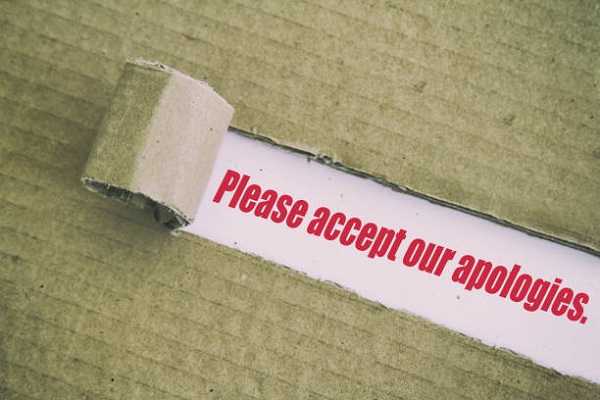Let us observe a moment of silence — for the death of a moment of silence.
Today, our cities hum like restless minds. Notifications mimic urgency; conversations overlap in a race to be heard. Even solitude feels surveilled. We’ve mistaken noise for relevance — and the louder the world, the smaller our inner space becomes. Yet silence isn’t passive withdrawal. It’s active listening — or as my counseling supervisor once said, “listening with our hearts.” Modern psychology now recognises it as cognitive recalibration — a state that restores attention, emotion, and compassion.
Still, we avoid silence. We scroll, we post, we treat our minds like dustbins — all to avoid the unbearable intimacy of being alone with ourselves. I often wonder, watching the world reflexively reach for its phones, if we’ve turned our minds into repositories for the day’s digital refuse — a ceaseless stream of notifications, hot takes, and curated lives from Instagram, WhatsApp, and LinkedIn.
Every scroll is an act of forgetting. Silence is the remembering — the mind’s exhale after the world’s endless inhale, where the psyche finds its pulse again.
I speak from experience. Before I donned the cloak of a psychologist, I was a journalist. My profession demanded that I consume every newspaper, scroll every feed, until that voracious intake became habit, then identity. My mind was a cacophony of other people’s voices — a static so loud I could only broadcast more noise in return, tweeting out half-formed thoughts as #drunktweet. I was a living example of the very anxiety I would later learn to treat.
The turning point came in the forced quiet of a fifteen-day meditation retreat — no phone, no world. There I learned that silence wasn’t the absence of sound; it was the presence of something deeper. My grandfather used to say, “When you stop talking, you start hearing what the heart is trying to say.” Back then, I thought he meant prayer. In that monastery, I learnt he meant peace.
In that profound stillness, I returned to Arthur Schopenhauer, who once wrote: “The art of not reading is a very important one… A precondition for reading good books is not reading bad ones, for life is short.” It wasn’t a call to ignorance but to discernment — attention as a moral act.
When I came back, I began practicing this art of selective silence. I stopped grazing on headlines and began pairing my mornings with Rumi and Gibran. Such writers cannot be scrolled; they must be sat with. They slow you down until you begin to listen — not to them, but to yourself. Slowly, I replaced my addiction to noise with an addiction to quiet.
Practising Quiet
Now, when I go for walks, I wear headphones without music. They are not portals of sound but shields of silence. They are a gentle barrier against small talk that might shatter solitude. It’s not misanthropy. It’s preservation. Nietzsche once said, “All truly great thoughts are conceived by walking.” What he forgot to add was that silence is the path.
But silence today is not a default; it is a discipline. It is a conscious effort. In psychological terms, “quiet” isn’t the absence of sound — it’s the restoration of equilibrium. Our nervous systems, overstimulated by pings and updates, forget how to downshift. We become physiologically addicted to anticipation — to the dopamine hit of “maybe something’s coming.” The result: a mind that experiences rest as a threat. Silence feels unsafe because it lacks reward cues.
That’s why, when you turn off your phone, you might feel a flicker of unease before peace arrives. The body is detoxing from immediacy.
In therapy, I see this every day. Clients fill silence as if it were a void that might swallow them. The first pause in a session often feels unbearable; they check if they’ve said something wrong, if I’m judging them. But silence in therapy is not absence — it’s invitation. It’s where truth surfaces unforced. The moment they stop speaking is often when the mind begins to. Tears, laughter, clarity — they all bloom in that pause. Silence is the psyche’s mother tongue. We have lost fluency.
When I guide clients through burnout, silence is often their biggest fear. Stillness feels like emptiness — an unfamiliar terrain where thoughts echo too loudly. But healing begins in that echo. Acceptance is not resignation; it’s reclaiming authorship of what occupies your mind.
Silence can start small: a minute of mindful pause between meetings, cooking without background TV, walking without earbuds. These simple rituals train the brain to find signal in the static.
Neuropsychology shows why this matters. Quiet activates the brain’s default mode network — the region responsible for introspection, memory, and imagination. In silence, the mind integrates experience into coherence. Without it, thoughts fragment; emotions pile up like unprocessed data. The more we consume, the less we digest. We become mentally bloated — overfed, yet undernourished.
Across civilisations, silence was once the highest form of intelligence. In Vedanta, manana — quiet contemplation — was how knowledge ripened into wisdom. The Sufis called it sukut, the stillness that opens doors to divine intimacy. Early Christian mystics practiced silence as vigilance; Stoics, as moral strength. Each tradition knew silence not as withdrawal but as attunement — a way to hear what is otherwise inaudible.
Modern culture, however, has rebranded silence as inefficiency. In the economy of attention, every pause must be filled. We equate silence with boredom, and boredom with failure. In workplaces, silence is mistaken for disengagement; in relationships, for indifference. But silence is not the opposite of connection — it’s the condition for it.
We cannot listen if we are always speaking. We cannot empathise if we never stop broadcasting. The noise we live in has eroded our capacity for empathy — we react faster, feel shallower, burn quicker.
That’s why I resist noise — not out of nostalgia for a quieter past, but because silence is the only terrain where selfhood can survive. The danger of a noisy mind is that it believes it’s thinking when it’s merely repeating. Tolstoy warned us through Stepan Arkadyich in Anna Karenina — the man who consumed every popular opinion yet thought none of his own. That’s not what we want to be — someone without an iota of original thought — do we?
Silence, then, becomes an act of rebellion. It’s a refusal to outsource thought. Rebuilding our capacity for quiet requires courage: the courage to let a message sit unanswered, to walk without a podcast, to let a car ride unfold without background noise. Silence is not passive; it’s radical presence — the most active listening we can do to the world, to others, and to ourselves.
I remember the first forty-eight hours of my first silent meditation retreat as pure torment. My mind was feral, pacing for stimulation. The silence was too loud. But by the fifth day, something shifted. The external noise had stopped, and the internal noise began to fade. I started noticing subtler sounds — the rhythm of my breath, birds I’d never heard, my own heartbeat. Then came an unexpected emotion: relief. I wasn’t missing out. I was returning inwards.
That return is what I now prescribe — to myself and to others. Two minutes of stillness before the day begins. Device-free meals. Slow walks. Letting silence stretch instead of rushing to fill it. These are not acts of austerity; they are acts of repair. They rebuild the psychological muscle that digital life atrophies — the capacity to be with oneself without performing, producing, or proving.
Silence is mental hygiene. It detoxifies attention. It teaches us to respond rather than react. It returns authorship of thought to its rightful owner.
Silence also reshapes how we connect. Studies show that empathy circuits strengthen when we reduce sensory overload. In quieter spaces, we read faces better, listen without rehearsing replies, and respond rather than react. Families who share even ten minutes of quiet — reading, gardening, or simply sitting — often report greater attunement. In teams, silent reflection before meetings turns competition into collaboration. Silence, then, is not escape; it is collective repair.
Of course, it’s easy to romanticise silence — the monastery, the mountain, the dawn without Wi-Fi. But nostalgia makes peace feel unreachable. Silence must coexist with chaos. We can’t mute the world, but we can modulate our inner volume. Even in traffic, even mid-conversation, there’s a micro-pause between breath and response — that fraction of a second where self-awareness lives. In yoga, there’s a beautiful practice pratyahar, which means cutting the food of senses. Just pick a sensory organ and cut its food- close your eyes or withdraw from sound, that’s it.
In a world addicted to commentary, perhaps the most radical act left is not to say more, but to savour longer.
.png)





